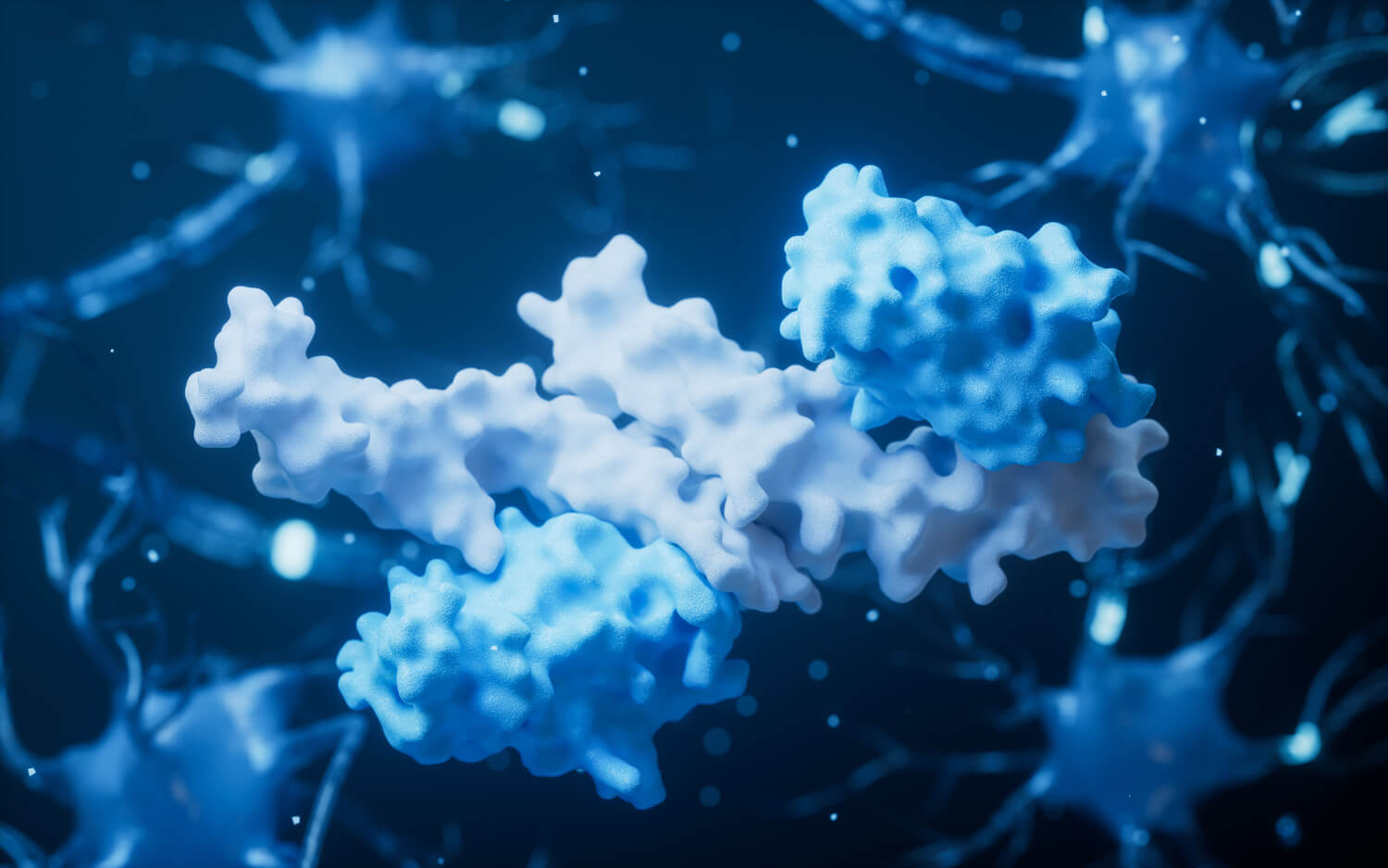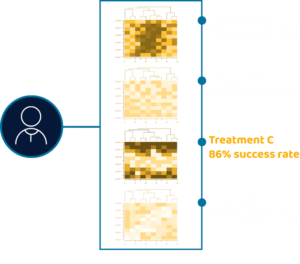Proteomic profiling of advanced hepatocellular carcinoma identifies predictive signatures of response to treatments.
Delamarre et al., bioRxiv 2025

Why focusing on the proteome
While many approaches center on DNA or RNA, our method takes a unique path by studying the proteome—the layer most directly linked to the pathology and getting rid of the several modifications between DNA code and real cellular biology.
Proteins play a pivotal role as they are directly responsible for cellular biological functions and serve as the primary targets of therapeutic treatments. By examining protein expression and the associated signaling pathways, we uncover vital insights into the mechanisms that drive treatment response, enabling a deeper understanding and more precise interventions.

POC on liver cancer
To date, we have conducted two Proof Of Concepts in liver cancer involving more than 50 patients, successfully distinguishing responders from non-responders for both first- and second-line treatments. Building on these promising results, we are now collaborating with seven French hospitals to expand our research and validate our test for the upcoming first line of treatment.
Team publications
Spatial characterization of β-catenin-mutated hepatocellular adenoma subtypes by proteomic profiling of the tumor rim.
Sylvaine Di Tommaso*, Cyril Dourthe*, et al., JHEP Rep. 2023 Sep
Proteomic Profiling of Hepatocellular Adenomas Paves the Way to Diagnostic and Prognostic Approaches.
Dourthe C, et al., Hepatology. 2021 Sep
ASS1 Overexpression: A Hallmark of Sonic Hedgehog Hepatocellular Adenomas; Recommendations for Clinical Practice.
Sala M, et al., Hepatol Commun. 2020
Argininosuccinate synthase 1 (ASS1): A marker of unclassified hepatocellular adenoma and high bleeding risk.
Henriet E, et al., Hepatology. 2017 Dec


